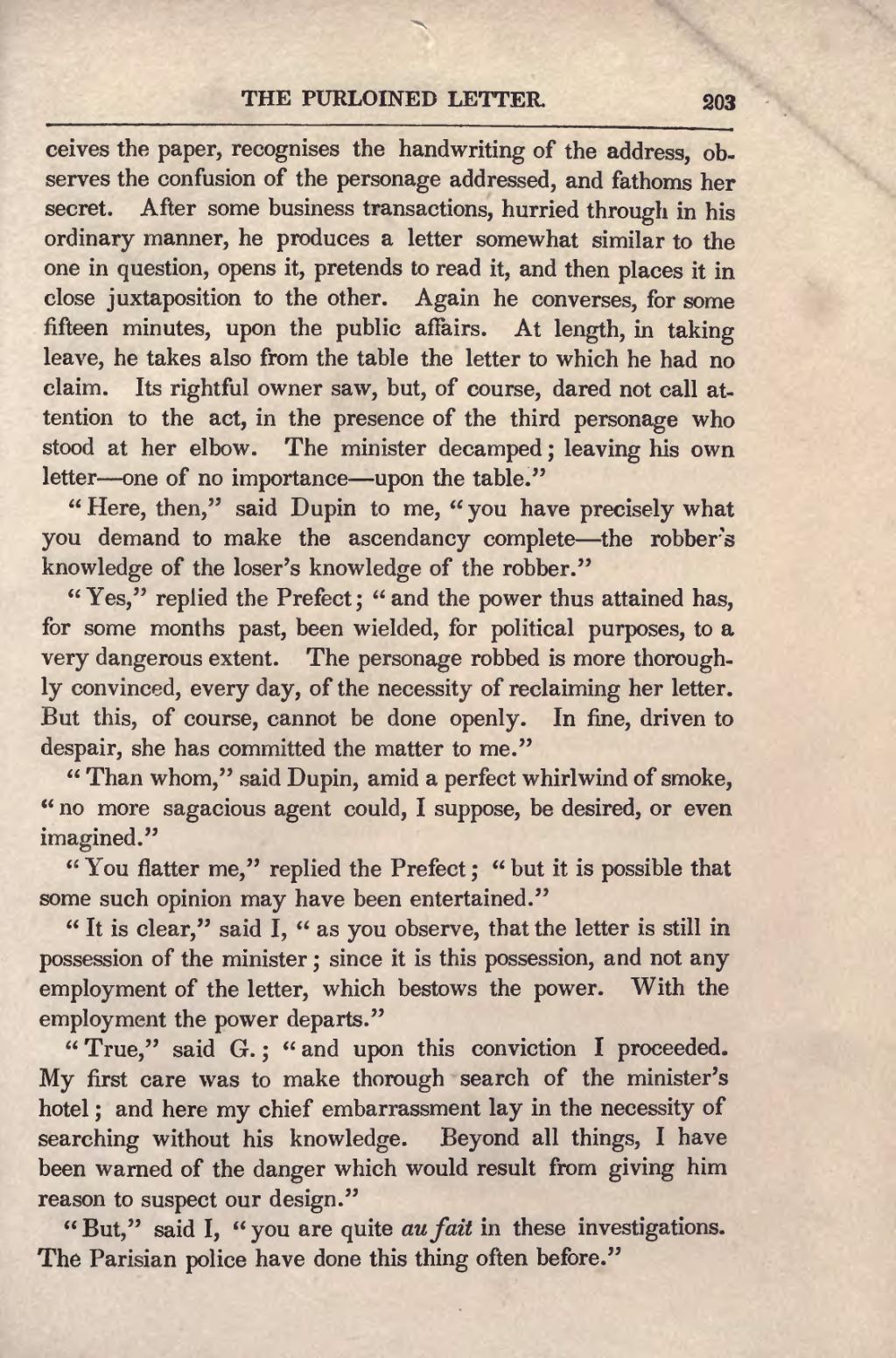ceives the paper, recognises the handwriting of the address, observes the confusion of the personage addressed, and fathoms her secret. After some business transactions, hurried through in his ordinary manner, he produces a letter somewhat similar to the one in question, opens it, pretends to read it, and then places it in close juxtaposition to the other. Again he converses, for some fifteen minutes, upon the public affairs. At length, in taking leave, he takes also from the table the letter to which he had no claim. Its rightful owner saw, but, of course, dared not call attention to the act, in the presence of the third personage who stood at her elbow. The minister decamped; leaving his own letter—one of no importance—upon the table."
"Here, then," said Dupin to me, "you have precisely what you demand to make the ascendancy complete—the robber's knowledge of the loser's knowledge of the robber."
"Yes," replied the Prefect; "and the power thus attained has, for some months past, been wielded, for political purposes, to a very dangerous extent. The personage robbed is more thoroughly convinced, every day, of the necessity of reclaiming her letter. But this, of course, cannot be done openly. In fine, driven to despair, she has committed the matter to me."
"Than whom," said Dupin, amid a perfect whirlwind of smoke, "no more sagacious agent could, I suppose, be desired, or even imagined."
"You flatter me," replied the Prefect; "but it is possible that some such opinion may have been entertained."
"It is clear," said I, "as you observe, that the letter is still in possession of the minister; since it is this possession, and not any employment of the letter, which bestows the power. With the employment the power departs."
"True," said G.; "and upon this conviction I proceeded. My first care was to make thorough search of the minister's hotel; and here my chief embarrassment lay in the necessity of searching without his knowledge. Beyond all things, I have been warned of the danger which would result from giving him reason to suspect our design."
"But," said I, "you are quite au fait in these investigations. The Parisian police have done this thing often before."
